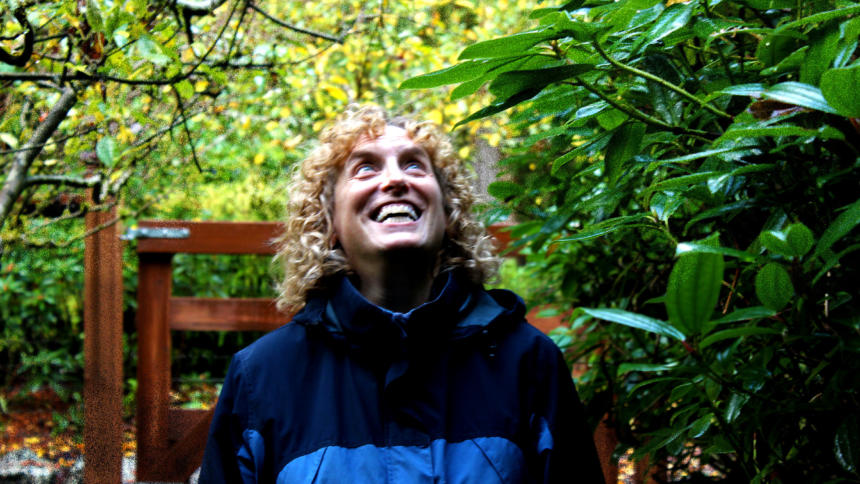Shari Steele ist seit Anfang Dezember 2015 neue Direktorin beim Tor Project. In unserem Interview erzählt sie, welche Aufgaben auf sie zukommen und wie sie diese bewältigen möchte. Shari arbeitete seit 1992 bei der Electronic Frontier Foundation (EFF), die letzten 15 Jahre auch dort als Direktorin.
In der Anfangszeit war die EFF maßgeblich daran beteiligt, dem Projekt zu dem zu verhelfen, was es heute ist. So arbeitete Shari schon während ihrer Zeit bei der EFF mit den Leuten vom Tor Project zusammen. Sie war zudem verantwortlich für die finanzielle Unterstützung des Projekts seitens der EFF von 2004 bis 2005.
Zur Zeit läuft übrigens die erste große Spendenaktion vom Tor Project. Wer mehr als 100 Dollar spendet, bekommt dafür ein T-Shirt, aber dazu später mehr im Interview.
Das Tor Project ist in der letzten Zeit erheblich umfangreicher geworden, die interne Organisation ist aber aus der Anfangszeit bestehen geblieben und nur bedingt mitgewachsen. Shari gibt in dem Interview einen Einblick in die sympathische bisherige Arbeitsweise und erzählt, wie sie mit ihrer organisatorischen Arbeit vorhat, dem Projekt gerecht zu werden.
Eine deutsche Übersetzung des Interviews gibt es mittlerweile auch, hier aber das englische Original:
„It is going back to the Internet freedom community that I love so much.“
netzpolitik.org: You have been introduced as the person making the organizational side of the Tor Project excellent, while the technical side is already great. What are your plans to reorganize the Tor Project?
Shari Steele: I want to work on the infrastructure supporting the Tor Project. I am not a technologist and it would be ridiculous for me to come in and try to tell these brilliant people how to do their technological work. So the things I am going to be working with are fundraising and operations. We need to bring in some money from, first of all, sources other than the government. Our government funding is designated for specific projects. We need to report that we have used the money only for those purposes – but there are a lot more things we would like to do.
But the infrastructure to support everybody does not really exist yet at the Tor Project. For instance, we need to have somebody focused on doing human resources. The Tor network relies on many wonderful volunteers, and volunteers often work on projects we can’t get funding for. Some volunteers are very dependable and some volunteers are less dependable, and sometimes volunteers are excited about working on one thing but not on another. Currently, we lack a strong infrastructure even for things like collecting donations.
Here is a great example: We wanted to give out t-shirts for people who gave us over $100, but there is no mechanism for letting us know what size of t-shirt you want or whether you even want one. So the way of working right now is, when we see that someone gave a donation over $100, we send them an email asking their shirt size. After the person writes back, we record their preference into a spreadsheet. All of this is because there is no infrastructure to handle this task. And that is the kind of thing that I am going to work out.
netzpolitik.org: Why have you left EFF and started as executive director at Tor?
Shari Steele: I left EFF in April because my husband got a job in Seattle. We were living in the San Francisco Bay area; the EFF office is in San Francisco. So we moved and I was not able to stay at EFF. I thought that I would take some time off and figure out what I wanted to do next. But then my kids were back to school and I was bored. The Tor Project tracked me down in the beginning of September, we talked about the job offer, I thought about it over a week and then I decided: Okay, I am ready to go back to work and this would be really fun. It would be really interesting and exciting because I have the right skills for the job, for what they need, and I could really see making a difference. And it is going back to the Internet freedom community that I love so much.
netzpolitik.org: How does your work differ from what you have imagined?
Shari Steele: In just about every way. What is not different is: The people are so nice and so smart, very kind and really, really passionate about what they are doing. So in that respect, it was what I was expecting. What I was not really prepared for was how… how techies have this way of thinking. For every problem there is a very analytical way of solving it. But sometimes it does not require that kind of deep thought. Sometimes there are already solutions in place. So, there is lots of stuff on the non-technical side where I need to go in and say: „Interesting solution, but let us do it the other way; it is going to be more efficient.“
netzpolitik.org: What were the big changes in the Tor infrastructure in the last year?
Shari Steele: One of the really big positive changes for Tor was the recognition that they need to specialize their organization. For a long, long time, everybody wanted to know everything; everybody was doing everything. But over this past year they really came to the understanding that they are getting too big, and that it is not scalable. So there has been a separation – I am using this word very loosely, because everyone still does want to know things – and it is a cultural shift, but this cultural shift has started. It is actually having people recognizing that they can be more efficient in their work if they are focusing on the things that are around them and they can trust that there is another team focusing on the other things. They do not need to be in all of the details of all the other things. It is a slow shift but it is a serious shift, and I think that hiring me is actually part of that process.
They also could have hired another executive director who comes from the Tor community and who is tech savvy and brings in skills that are very similar to the skills they already have – or they could have done what they did, which was to say: „There are some skills that we really do not have; let us recognize that and bring in someone who can bring these skills in.“





0 Ergänzungen
Dieser Artikel ist älter als ein Jahr, daher sind die Ergänzungen geschlossen.